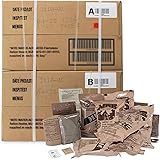Hello there! Today, I’m excited to dive into a topic that’s come up so often in conversations: achieving self-reliance without owning a large property. I mean, it’s a question that many of us ponder, especially in this day and age when minimalism and sustainability are becoming more important than ever. Thankfully, I’ve gathered some insights that I think can guide you on this journey—I’ve learned a lot through my own experiences, so let’s jump right in!
1. Embracing a Minimalist Lifestyle
Understanding Minimalism
To kick things off, let’s talk about what minimalism really means. At its core, it’s about simplifying your life—focusing on what truly matters to you. You don’t need a massive space filled with stuff to feel fulfilled. Personally, I found that decluttering my space lifted not only physical loads but also mental burdens. It’s liberating!
By letting go of excess belongings, I began to appreciate the little things. You know, the experiences, the relationships—I realized that time is more valuable than any fancy gadget.
So, start small. Pick a room or even a closet. Remove what you don’t use or need. You’ll find motivation in the clarity that follows!
Adopting Efficient Living Practices
Living efficiently is all about maximizing utility while minimizing waste. I’ve experimented with various forms of efficient living, from tiny houses to shared living environments, and I’ve seen the benefits first-hand. A smaller space means less upkeep and lower costs.
Consider incorporating multi-functional furniture into your space. My foldable dining table doubles as a desk, and that’s a game-changer! Additionally, think about using every inch of space available—think vertical storage and creative organization methods.
Remember, self-reliance isn’t merely about having more; it’s about making the most of what you have!
The Importance of Intentionality
Another crucial element of self-reliance through minimalism is being intentional with your choices. When I started choosing what to bring into my life with purpose, I noticed a dramatic shift in my overall happiness. Whether it’s relationships, hobbies, or purchases, I began to evaluate the value and purpose of each item.
== > What if ... Get a FREE Subscription to PREPARE
This intentionality has led me to foster deeper connections and invest time in experiences that resonate with my values. I encourage you to create a list of priorities when it comes to your life; what do you cherish? Focus on that.
By living intentionally, you’ll find your path to self-reliance not only clearer but also much more enjoyable!
2. Building a Sustainable Community
Networking with Like-Minded Individuals
A big aspect of achieving independence is surrounding yourself with the right people. Since embarking on my journey, I’ve built a network of supportive friends and fellow enthusiasts who share similar goals. Whether it’s through local meetups, online groups, or workshops, connecting with like-minded individuals can open doors to opportunities.
These connections can lead to resource sharing—like swapping tools, gardening tips, or even making community meals. It’s amazing how collaboration can lead to innovation and self-reliance.
Start looking around your community or online platforms. You might just stumble upon an inspiring group that aligns with your path!
Participating in Cooperative Enterprises
Cooperatives are fantastic alternatives to traditional business models, and they can help you achieve self-reliance. I recently joined a food co-op, and it’s been a life-saver! Not only do we access organic produce at lower prices, but we also contribute to a system that’s community-focused.
Consider looking for other co-ops related to your interests—be it housing, crafts, or shared transportation. These shared ventures can ease the burden of costs while promoting sustainability.
This model teaches invaluable lessons in teamwork and resource allocation, which can strengthen your self-reliance even more!
Engaging in Local Workshops and Learning Opportunities
One of the coolest ways I’ve learned to be self-sufficient is through local workshops. Be it everything from gardening to DIY home repairs, I’ve found that hands-on experiences not only build skills but also bring people together.
These workshops often provide access to valuable knowledge that you might not have had otherwise. Plus, you get to meet others who share your interests, fostering a strong community spirit.
If you’re in search of such opportunities, check out community boards, libraries, or local universities. They usually have a wealth of options just waiting for you!
3. Practicing Urban Agriculture
Starting Your Own Garden
Whether you live in an apartment or a small house, growing your own food is a powerful way to achieve self-reliance. I took the plunge last summer and started a small herb garden on my balcony. It was surprisingly easy and incredibly rewarding as I now enjoy fresh basil and cilantro right at home!
You don’t need a backyard; container gardening can work wonders. Herbs, lettuce, and even some vegetables thrive in small spaces. Explore vertical gardens or hydroponics if you’re feeling adventurous!
Trust me, there’s nothing quite like using ingredients that you’ve nurtured yourself in your meals!
Joining a Community Garden
If you don’t have space for a garden at home, consider joining a community garden. This initiative is a great way to learn about gardening while connecting with others. I joined one last year and have made some incredible friends who’ve taught me so much about sustainable practices.
Community gardens often provide resources, seeds, and mentorship. They can introduce you to organic gardening techniques and provide fresh produce to those who participate.
By being part of such a community, you strengthen your food independence and become part of a network that values nutritious options. Plus, it’s just plain fun!
Learning About Permaculture
Permaculture is all about creating sustainable ecosystems, and it’s an exquisite practice to dive into for self-reliance. I’ve attended workshops that taught me how to mimic nature’s patterns, which has helped me design not only my garden but a lifestyle rooted in sustainability.
With permaculture principles, you focus on using resources wisely and minimizing waste. It’s about observing your environment—and I’ve found that this holistic approach makes you appreciate nature even more.
Many communities offer classes and resources for those interested in learning more about permaculture practices. I highly recommend looking into it if you want to deepen your sustainability journey!
4. Fostering Financial Independence
Creating Multiple Income Streams
Let’s talk about money! Achieving self-reliance often has a lot to do with your financial situation. I started exploring side gigs and even part-time hustles to diversify my income. This not only helped me achieve stability but also allowed me the freedom to pursue what I truly love.
Whether it’s freelancing, starting a small business, or investing, building multiple streams of income can cushion your financial footprint. I encourage you to find something that aligns with your interests and skills.
The more financial freedom you create, the more self-reliant you become!
Budgeting and Smart Spending
I’ll be honest, budgeting was not my strong suit at first. But learning to manage my finances was a huge step towards self-reliance. By keeping track of my expenses and understanding where my money was going, I was able to cut unnecessary costs and save for things that genuinely mattered.
Apps or spreadsheets can help with this—find what works for you! Setting a budget also encourages smarter spending habits, which can lead to reduced financial stress.
Plus, I’ve learned to find joy in doing more with less, and trust me, it feels great!
Investing in Yourself
Lastly, investing in personal development is the best move for long-term self-reliance. I’ve taken courses that align with my passions and interests, enhancing my skills in ways that directly benefit my career and life.
From online classes to community workshops, there’s plenty of accessible learning out there. Some are even free! Enhance your knowledge and skillset; you’ll thank yourself later.
Ultimately, the more you grow, the more equipped you’ll be to tackle challenges independently!
5. Cultivating Mindfulness and Resilience
The Power of Mindfulness
Practicing mindfulness can seriously transform your journey to self-reliance. When I began meditating and truly being present in the moment, I noticed how much clearer my mind became. I started to appreciate everyday moments and cultivated a greater sense of gratitude.
This shift helped me focus better on my priorities and shed unnecessary anxieties about the future. Being mindful is like hitting the reset button on your life!
Consider adding mindfulness practices to your routine; you might find that simple moments bring abundant joy!
Building Resilience Through Challenges
Let’s be real—challenges are a part of life, especially when you’re pursuing self-reliance. However, I firmly believe that resilience is a skill we can all develop. Personally, I’ve faced setbacks that felt monumental at the time but ended up being valuable lessons.
Embrace failures as part of the growth process—I promise it makes you tougher. Every difficulty you overcome enhances your ability to tackle future obstacles more effectively.
Resilience leads to a greater sense of freedom and independence, and you’ll find yourself more capable than you ever thought possible!
Creating a Vision for the Future
Lastly, having a vision is key to guiding your self-reliance journey. I can’t stress this enough—it has been a game-changer for me. Take some time to imagine what your ideal life looks like. Write it down or create a vision board; it’s powerful stuff!
By having a clear direction, you can better align your actions and decisions towards your ultimate goals. This clarity helps me stay focused, especially when life gets chaotic.
Remember, self-reliance isn’t just what you do; it’s who you become as you navigate your path!
Frequently Asked Questions
1. Is it possible to achieve self-reliance without a large home?
Absolutely! Self-reliance is about making the best out of your current situation. You can embrace minimalism, foster community, and even grow your own food, all without needing a large property.
2. What are some low-cost ways to start a garden?
Starting a garden can be budget-friendly. You can use containers from your recycling, start with seeds instead of seedlings, and even join a community garden to share resources!
3. Can community engagement really help my self-reliance?
For sure! Building a supportive network not only provides resources and knowledge but also emotional support. It’s all about working together for a common goal!
4. How do I make my budget stretch further?
Creating a detailed budget and sticking to it is key. Track your spending, prioritize needs over wants, and look for deals or local co-ops to save on groceries.
5. Is mindfulness important for self-reliance?
Yes! Mindfulness helps you stay present and focused, making it easier to navigate challenges. It can enhance your overall sense of well-being and clarity in decision-making.
I hope this article sheds some light on your journey toward achieving self-reliance without the need for a large property. Remember, it’s all about making the most of what you have and connecting with others. Cheers to your path ahead!






